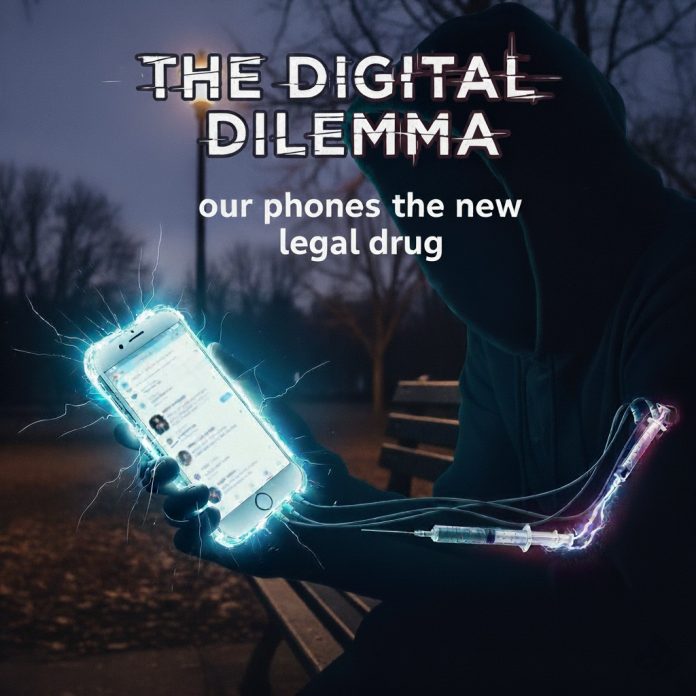– Zeeshan Naik
Look around. In waiting rooms, at dinner tables, on public transport – the scene is universal. Heads are bowed, eyes are glued to screens, and thumbs are in constant motion. The smartphone has seamlessly integrated into our lives, earning the title of our “best friend.” But is this a friendship that enriches our lives, or one that quietly impoverishes them?
We use these devices to bridge distances, connecting with people across the globe. Yet, in doing so, we often build invisible walls between ourselves and those sitting right beside us. The phone has evolved into a kind of legal drug, a potent dose of digital dopamine we can consume anywhere, anytime. Unlike illicit substances, it’s socially acceptable, even expected, to be constantly connected. This addiction is so profound that many cannot bear to be separated from their devices. They are companions during meals, study sessions, and even trips to the washroom.
The impact on the younger generation is particularly alarming. Gone are the days when children’s laughter echoed from playgrounds and parks. Physical activity and imaginative outdoor play are increasingly replaced by the glow of video games and social media feeds. A troubling pattern has emerged: a child cries, and a phone is offered as a pacifier. This habit plants the seed for a deep-seated dependency, to the point where a child may refuse to eat without their digital distraction. It’s their first priority upon returning from school, ahead of even the most basic routines. We are nurturing a generation for whom a smartphone is not a tool, but a necessity – a digital pacifier they cannot live without.
This shift has also eroded our most cherished social rituals. The family dinner table was once a sacred space for sharing stories and strengthening bonds. Today, while families may physically share the same room at the same time, they are often worlds apart. Each person is lost in their own virtual universe, engaging with strangers online while ignoring the real, living connections across the table. We strive to know the lives of acquaintances from a decade ago but have never introduced ourselves to the neighbour next door. We invest time and emotional energy into new, online friendships with people we have never met, while allowing our existing, tangible friendships to wither from neglect.
The irony is inescapable. We carry a device designed to connect us to everyone, and in the process, we risk disconnecting from everything that truly matters. It’s time to ask ourselves: are we using our phones, or are they using us? Reclaiming our presence in the real world begins with a simple, conscious act: putting the phone down, looking up, and engaging with the life happening right in front of us.




